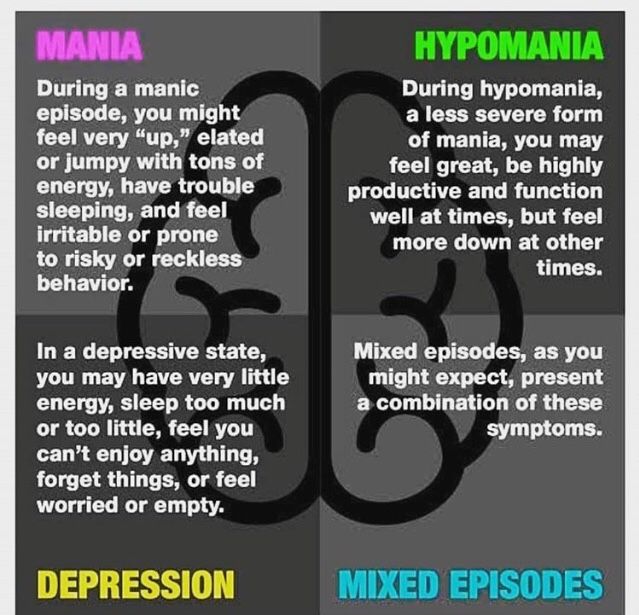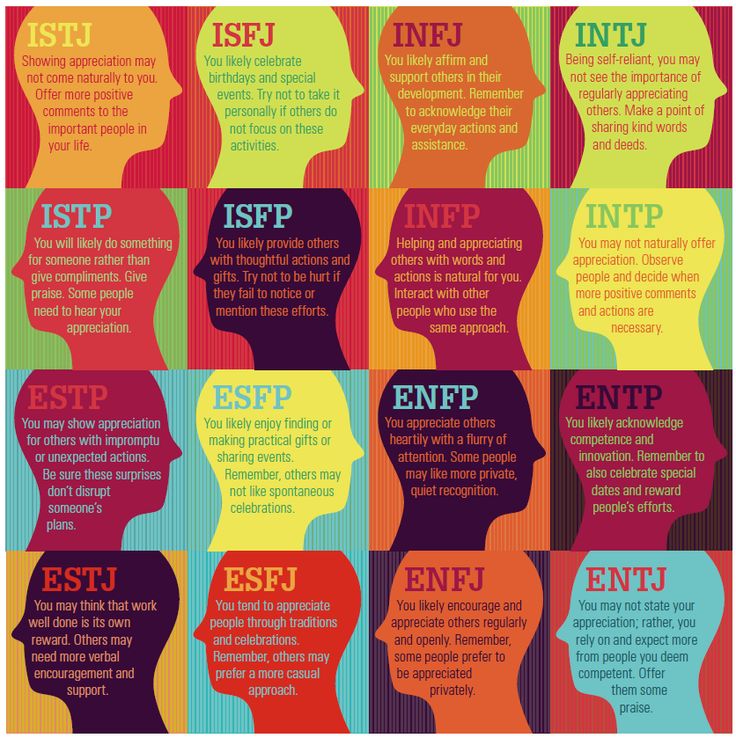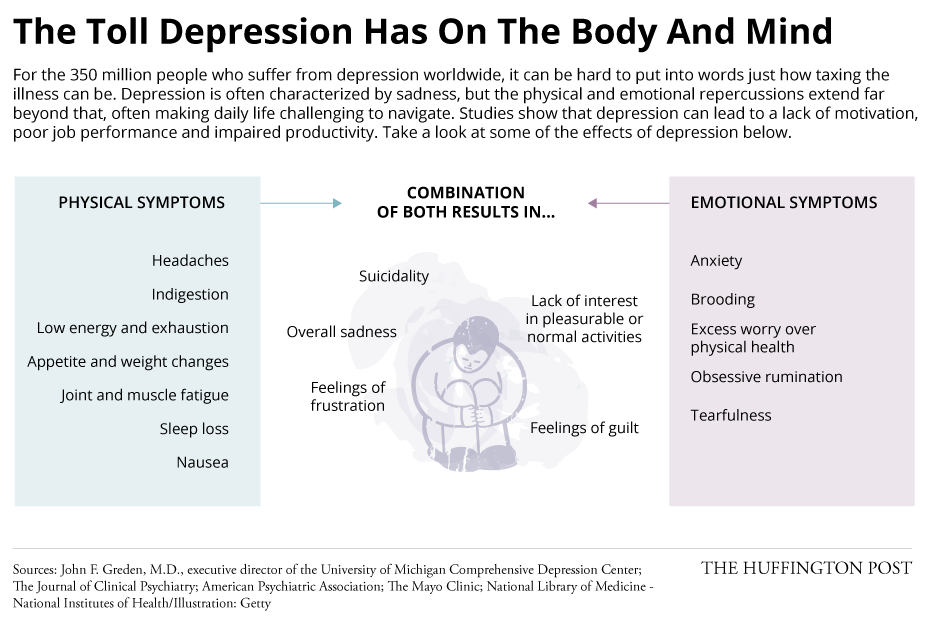Grieving the loss of your affair partner
Mourning Your Affair Partner | Center for Growth Therapy
Losing anyone you love is difficult. But losing an affair partner is difficult and complicated. This is because you may be excluded from normal mourning activities and rituals, and may not be able to reach out to friends or loved ones for support. You may not feel comfortable attending the funeral and being around your affair partner’s spouse and family. The affair may have been a secret you kept even from your closest friends, leaving you unable to lean on them now. Social support and shared rituals are important parts of mourning practices - so what do you do without them when you’re grieving the death of your affair partner?
Mourning Your Affair Partner Step 1: Identify your feelings
The first thing you’ll want to do is check in with yourself and try to identify how you’re feeling. Try to get more specific than “sad” or “confused.” Journaling or talking out loud (to a trusted friend, to a therapy support group, or even to yourself!) can help clarify all of the emotions that may be whirling around inside of you. Be honest with yourself. Some of the feelings or thoughts you identify may feel “wrong.” That’s okay. Try to observe them without judgment. For example, you may not feel much at all. You may feel numb, or like you are in a dream. You may feel overwhelmed or disorganized, unable to focus. Perhaps you feel anxiety or panic. These feelings are especially common when that person was relied on for certain things, like financial security, cooking, or simply comforting and reassuring you when you felt bad. You may feel a great deal of anger at the deceased person for leaving you without saying goodbye, or for ruining the possibility of a future together. You may feel jealous of the person’s spouse or family for being able to mourn openly and for getting the support you want. You may feel shame or guilt over something you said or didn’t say, or over the affair itself. Again, these feelings can sometimes feel “wrong,” but try to simply observe them and accept them as they are. All of these thoughts and feelings are completely normal after the loss of an affair partner.

Mourning Your Affair Partner Step 2: Draw on your cultural or religious background
It can be helpful to think about what your mourning process would look like under normal circumstances. What would you want to be doing if you could be public about your grief? Think back to when you lost a family member, relative, friend, or even a beloved pet. What did you do? You may have attended a funeral, created a memento of the loved one such as a framed photo or dried flowers from the funeral, and talked about your memories of the person with family or friends. Was your mourning practice rooted in your cultural or religious background? If so, what were the shared rituals within your home, mosque, synagogue, church, or meeting space? Which aspects of those cultural or religious practices bring you comfort and peace? These are the things you may want to adapt and incorporate into your own grief process. For example, if wearing black is an important aspect of your cultural mourning process, how can you incorporate black into your wardrobe in honor of the loss of your affair partner? Funerals may be a central aspect of mourning. Many funeral homes can arrange discreet, private services for affair partners, estranged family members, or others who may be excluded from the public service.
Many funeral homes can arrange discreet, private services for affair partners, estranged family members, or others who may be excluded from the public service.
One way to approach deciding what you want to incorporate into the mourning of your affair partner is to create a table listing all the traditions important to you and brainstorm possible modifications. To create this table, across the top, use the heading “Tradition” in one column, and “Modification” in the next. In the first column labeled “Tradition,” make a list of the traditions that come from your religion or culture that typically bring peace in times of mourning. In the next column labeled “Modification,” write one or two ideas of how you might be able to adapt the tradition to this new circumstance. For example, if “fasting” is a tradition in your religious or cultural background, a modified fast such as cutting out a specific food or a specific meal during the day. This modification may allow you to honor your traditional mourning practices, while also protecting your privacy and allowing you to be discrete if that is a concern for you.
Mourning Your Affair Partner Step 3: Create your own rituals and practices
If you do not have a reference point for past mourning practices, that’s okay. This is a personal process and you are allowed to create your own rituals and practices for grieving the death of your affair partner. The most important part of your mourning process is your own peace. So that leaves you free to do whatever it is that brings you the most peace, within your comfort zone. Think back on the things you and your affair partner enjoyed doing together. What routines did you have? Did they have a favorite food? Was there a place that you both loved to go together? What inside jokes did you share? Once you have a few ideas in mind, think of ways to honor those memories. These can be as discreet as needed. For example, can you leave a flower outside their favorite restaurant? Cook their favorite meal while listening to that band they loved? Perhaps you always talked on the phone during your commute.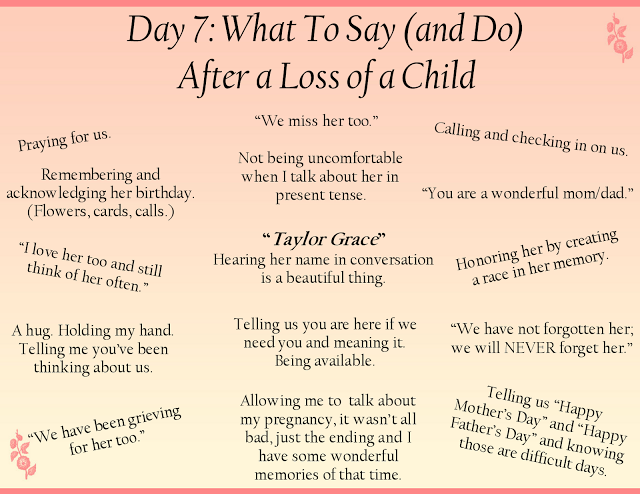 If it brings you peace, talk to that person during the drive. Hold the phone up to your ear and tell them that you miss them, or that you’re angry they’re gone.
If it brings you peace, talk to that person during the drive. Hold the phone up to your ear and tell them that you miss them, or that you’re angry they’re gone.
You can consider using the same table activity from the step above to brainstorm ways to ritualize your special memories of your affair partner. For this step, make two columns labeled “Memories” and “Ways to Ritualize.” Under “Memories,” list important memories you have of time that you and your partner spent together, places you went, things that you both enjoyed. Under “Ways to Ritualize,” write down one or two ideas for how you might turn that memory into ritual that allows you to honor it regularly. When you have some ideas on your list, pick a few that are most meaningful to you and find time to incorporate them into your schedule. You may start by doing this daily or weekly, but may naturally use rituals less and less as you begin to heal from the loss of your affair partner. However, you can feel free to draw on them again on significant dates such as their birthday, the anniversary of their death, or the anniversary of the day you met. These are tools for your own healing. Use them as you wish.
These are tools for your own healing. Use them as you wish.
Mourning Your Affair Partner Step 4: Find support where you can
Perhaps what you miss most about your affair partner is simply the companionship. It’s okay to feel lonely. You’ve lost someone important to you and things have changed as a result. You may have gotten into a routine with your partner, and now have to adjust to a new routine. You may have invested a great deal of time into this person and now you find yourself with free time that you’re not sure what to do with. You may have even neglected other relationships in your life, and now find yourself wanting to rekindle those relationships. It will take time to adapt to these changes and to figure out what your new life might look like without your affair partner. This is not about replacing that person, but about meeting your needs for companionship, support and caring relationships. However, try not to rush your grieving process. Your feelings are a sign of your affair partner’s importance in your life and the impact their loss has had on you. Sit with them for a while and let yourself feel them. When you’re ready, try to identify a friend or family member you can trust to listen compassionately and nonjudgmentally. Talking about the relationship, sharing your favorite memories or most difficult memories, and expressing your feelings of grief can help you feel less alone. Seeking out a grief group or individual therapy can also provide an important outlet and guidance for navigating the emotional journey of grieving the loss of your affair partner.
Your feelings are a sign of your affair partner’s importance in your life and the impact their loss has had on you. Sit with them for a while and let yourself feel them. When you’re ready, try to identify a friend or family member you can trust to listen compassionately and nonjudgmentally. Talking about the relationship, sharing your favorite memories or most difficult memories, and expressing your feelings of grief can help you feel less alone. Seeking out a grief group or individual therapy can also provide an important outlet and guidance for navigating the emotional journey of grieving the loss of your affair partner.
The tips above can help in recognizing, validating, expressing, and honoring your own experience. You’ve lost someone important, and it is natural to feel a mix of strong emotions. Losing an affair partner can be an alienating experience so it’s important to show yourself compassion by giving yourself permission to mourn. If you find yourself struggling to identify ways to mourn your affair partner or if you’d like someone to talk to about adjusting to a new life without your affair partner,
To speak with an affairs grief therapist call at 215-922-5683 Ext. 100 or if you prefer quietly setting yourself up for an appointment, you can self schedule an inperson or virtual therapy appointment. For your convenience we have 5 physical offices and provide virtual therapy services in Florida, Georgia, Pennsylvania, New Jersey, New Mexico and Virginia.
100 or if you prefer quietly setting yourself up for an appointment, you can self schedule an inperson or virtual therapy appointment. For your convenience we have 5 physical offices and provide virtual therapy services in Florida, Georgia, Pennsylvania, New Jersey, New Mexico and Virginia.
Ocean City Therapy Office
360 West Ave, Floor 1, Ocean City, NJ 08226Mechanicsville Therapy Office
9044 Mann Drive, Mechanicsville Virginia, 23116Society Hill Therapy Office
233 S. 6th Street, C-33, Philadelphia PA 19106Art Museum / Fairmount Therapy Office
2401 Pennsylvania Ave, Suite 1a2, Philadelphia PA 19130Santa Fe Therapy Office, 2204 B Brothers Road, Santa Fe, New Mexico, 87505
Telemedicine: We have therapists who are licensed to work in Florida, Georgia, New Jersey, Virginia New Mexico and Pennsylvania
You deserve the best therapist possible.
 Our special sauce for helping you achieve your goal, begins with matching you with the right therapist. Check out our GUARANTEE.
Our special sauce for helping you achieve your goal, begins with matching you with the right therapist. Check out our GUARANTEE.Therapy Services Offered:
Individual Counseling and therapy
Couples Counseling and marriage counseling
Teen Therapy and Adolescent Therapy and tweens and child counseling
Family Therapy and multi-generational counseling
Art Therapy and Counseling no art skills needed
ADHD Therapyand ADD, Dyslexia, Autism, Tourettes counseling
Anxiety, Panic, OCD Therapy and worry and fear support
Breaking the cycle of Codependency and being your own person
Overcoming Chronic Illness and Chronic Pain
Depression Therapy and sadness, gloom, and upset support
Grief Therapy and loss, End of A Relationship, rejections, pregnancy loss and therapy
Mindfulness Based Therapy and spirituality based therapy
Sex Therapy and sexual function & dysfunction, sex addiction, sexual orientation and gender identity support
Shame and Blame
Trauma Therapy both emotional and sexual abuse, complex trauma, PTSD counseling
Divorce support
Affairs, Infidelity, Unfaithful, Cheating counseling
Parenting therapy
Personality disorder treatments
Anger Management Therapy
Setting Boundaries and identifying ones own Core Beliefs
Just name some of the Mental Health issues that we work with.
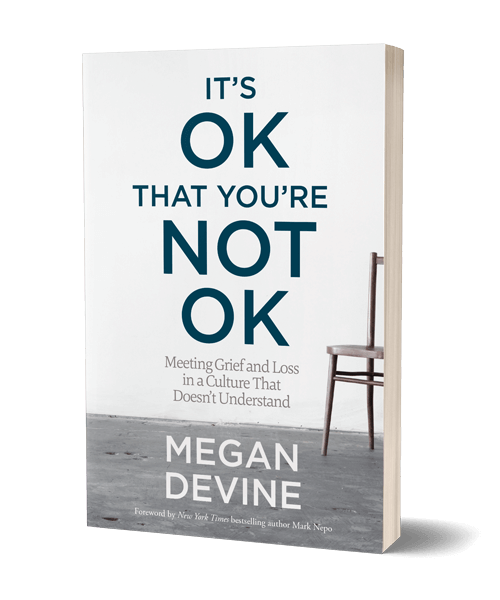 Our goal is to help you Change and Achieve Your Dreams
Our goal is to help you Change and Achieve Your Dreams
Is it Normal to Miss Your Affair Partner? | by Marie Murphy, Ph.D. | The Scarlett Letter
In a word, yes. But then what?
Photo by Noah Silliman on UnsplashSometimes clients seek my assistance because they’ve had an affair, and the affair is over… but they miss their affair partner TERRIBLY.
Like, excruciatingly, intensely, I-can’t-think-of-anything-but-them-and-I-can’t-concentrate-on-anything-other-than-my-pain-for-more-than-two-seconds terribly.
And whenever I talk to folks in this situation, my heart goes out to them, because missing someone you love and have been separated from is such a singular experience of pain.
And often, missing an affair partner is a very PRIVATE experience of pain. Maybe your affair was a secret, and no one but you and your affair partner knew about it… and now that it’s over, no one knows about your grief. If your spouse or primary partner didn’t know about the affair, you may be struggling to hide your grief, in addition to, you know, feeling the pain of the grief itself.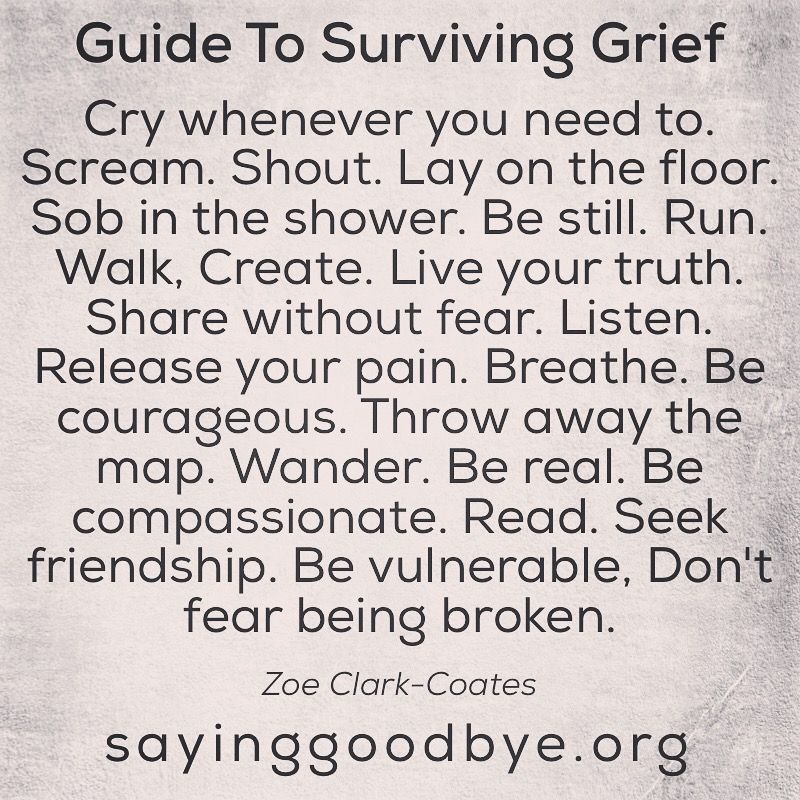
Even if your affair wasn’t a complete secret, you may not have a whole lot of support for dealing with the emotions that come with ending the relationship. Infidelity may be incredibly common, but it’s also stigmatized, so it may be hard to find sympathy from the people you’d love some sympathy from. If your spouse/partner knows about the affair, they may be dismayed by your feelings about ending the affair (on top of being disgruntled about the affair itself), or may be impatient for you to get over it and move on.
Grief like this is sometimes called disenfranchised grief, or grief that society doesn’t acknowledge as legitimate, or AS legitimate of other forms of grief.
Put differently, experiencing disenfranchised grief can be kind of like getting kicked while you’re down. You’re hurting, and there isn’t much comfort to be had from people who might extend their care to you under other circumstances.
Ouch.
So the first point I want to make absolutely clear is that your pain is legitimate.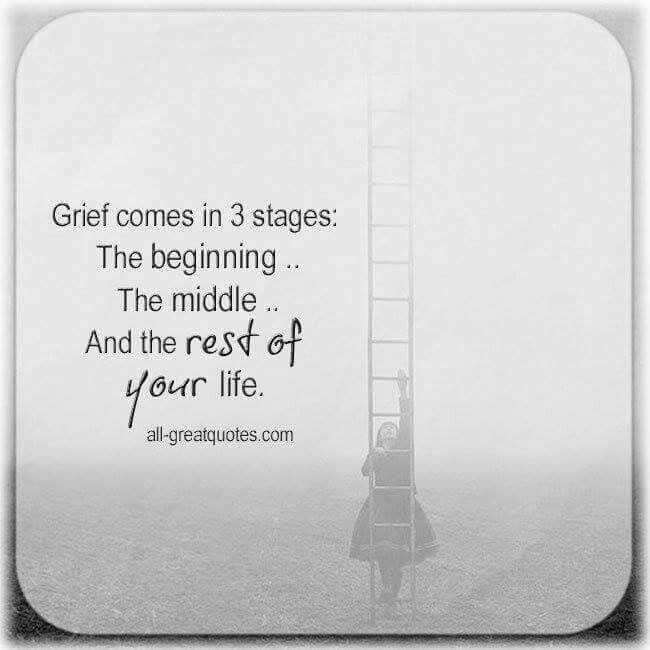 Human life is messy and complex at times. Sometimes people fall in love with people they aren’t “supposed” to love, and those relationships can be incredibly rich and full of meaning and care and significance, even if they were never “supposed” to happen in the first place. And when these relationships end, it can be really, really sad.
Human life is messy and complex at times. Sometimes people fall in love with people they aren’t “supposed” to love, and those relationships can be incredibly rich and full of meaning and care and significance, even if they were never “supposed” to happen in the first place. And when these relationships end, it can be really, really sad.
It’s important to honor your own sadness and sense of loss. It’s important to honor the love you shared with your affair partner. (And I honor it too.)
Sometimes clients seek my help because they’ve ended an affair and they’re terribly sad and they want to know what their sadness MEANS, and what it means they should DO.
Here’s the deal: sometimes endings are just sadSometimes they’re really, really, really, REALLY sad and painful and intense. The loss of a relationship with someone we cared deeply about can feel insanely uncomfortable, and most of us are not very good at dealing with intense discomfort. Most of us have never learned how to tolerate emotional pain, so dealing with it is excruciating and sometimes confusing.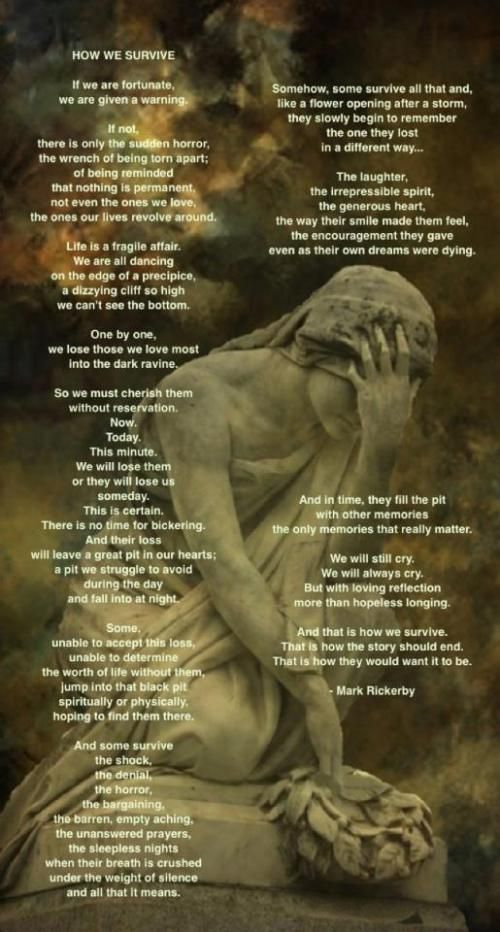
So often, we try to lessen our pain by giving it MEANING. We try to figure out WHY we’re really sad that the affair is over, or what it means that we really miss our affair partner, and what all of these feelings mean we should do.
For example… we may tell ourselves that our sadness is a sign that our affair partner was our one true love, or only soul mate! We may tell ourselves that since we miss our affair partner so much, it’s a sign that we SHOULD be with them! We may tell ourselves we’re never going to experience the same kind of love with our spouse! And when we start to tell ourselves these kinds of things, we usually feel worse — more confused, more sad, more deprived, more persecuted, or whatever.
But what if you could just feel sad, without making that sadness mean anything in particular?What if a spell of sadness and pain was as normal as a rainy season, or a patch of bad weather? Most of us accept bad weather as part of life. We may not love the rain or snow or sleet, but when our least favorite form of weather hits, we recognize it as part of life, and we do what we can to ride it out.
We may not love the rain or snow or sleet, but when our least favorite form of weather hits, we recognize it as part of life, and we do what we can to ride it out.
And sometimes our emotional weather system isn’t sunny, either. Sometimes, the most important thing we can do is simply recognize this, and allow our emotional weather systems to run their course.
Sometimes people put an end to an affair because they are very stressed out about the situation, they feel guilty about the infidelity and deception, they’re confused about what they want, and ending the affair seems like the only way — or at least, the quickest way — to “solve the problem.”
And to many of my clients, this seems both logical and honorable! Many of my clients have ended their affairs because they want to “do the right thing,” or “stop being selfish.”
And ending the affair does indeed solve a few of their problems: they’re no longer actively cheating and lying, and they feel better about that.
But at the same time, they’re longing for their affair partner, they don’t feel certain about the decision they made to end the affair and stay with their spouse, and they don’t know how to move forward.
Let me be clear: I don’t think there’s anything wrong with wanting to resolve a complicated situation in your life, and get all of your ducks in a row, and put an ethical dilemma to rest. But making a decision about complex matters under pressure, without giving yourself time to figure out what you really want and permission to do what’s right for you even if it isn’t what other people think you should do, may not lead to great outcomes.
So if you’ve ended your affair and you’re feeling terrible, it’s possible that this is an indication that you made a decision hastily, without taking the time to get really clear about what you wanted, and the reasons for making the choice you did.
Ending a relationship with someone you care about because you believe you “have to” or “should” usually feels awful.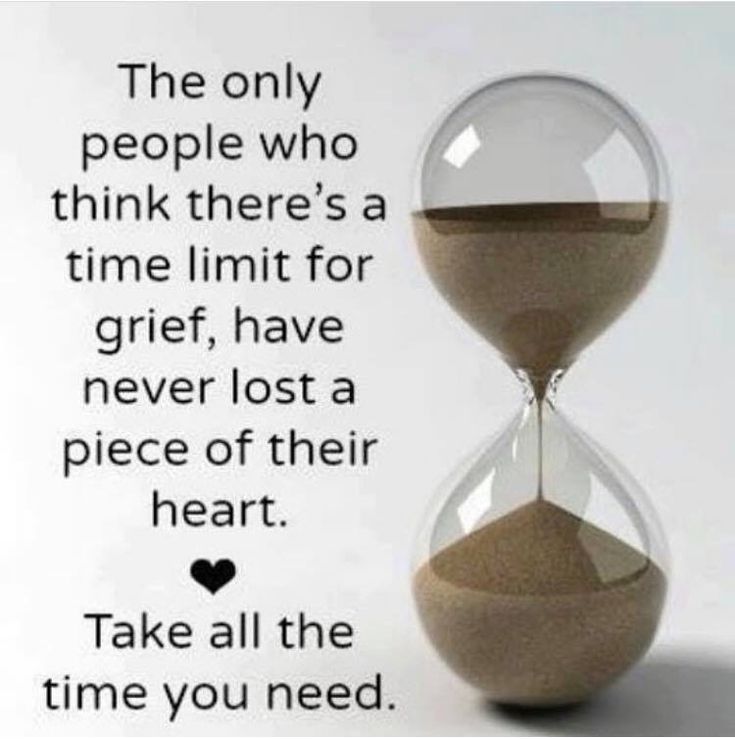
So how do you know whether the particular flavor of awful you’re feeling is simply — “simply” — a natural response to the ending of a relationship that was important to you, OR an indication that you need to do some serious introspection?
Where to start
Here’s a good starting point: ask yourself WHY you choose to end your affair. Get really clear on what those reasons are. Make a list. Write it down.
If you don’t have a clear set of reasons why you ended the affair, or you don’t like any of your reasons for ending it, that’s a pretty good sign that it’s time to revisit the decision. If you DO have a clear set of reasons for ending the affair, and you feel good about those reasons (even if you don’t necessarily like them), that’s a pretty good sign that it’s time to work on allowing yourself to feel your feelings about the relationship’s end. Grief hurts, for sure, but it will pass. And you might be surprised by what you find in its wake.
Coping with the death of a loved one
This information will help you learn how to cope with grief and take care of yourself after the death of a loved one. We hope this material will help you and your family.
We hope this material will help you and your family.
Grief
Grief is a normal response to loss. Grief has psychological (mental), emotional and physical manifestations.
After the death of a loved one, you may experience shock or disbelief. Some people feel numb or feel like they are in a dream. There may be times when you feel sad, empty, or alone. You may even feel angry, guilty, or relieved. It is normal to experience several of these feelings at the same time.
Grief can also be accompanied by physical manifestations, including changes in appetite, weight, or habitual sleep patterns. You may have a headache or stomachache. In addition, you may find it difficult to think about returning to your daily activities or work. Some days you may have more energy than others. Remember that there is no right or wrong way to deal with grief. Each person goes through this in their own way.
The first months after the loss can be the most painful, but feelings often change over time.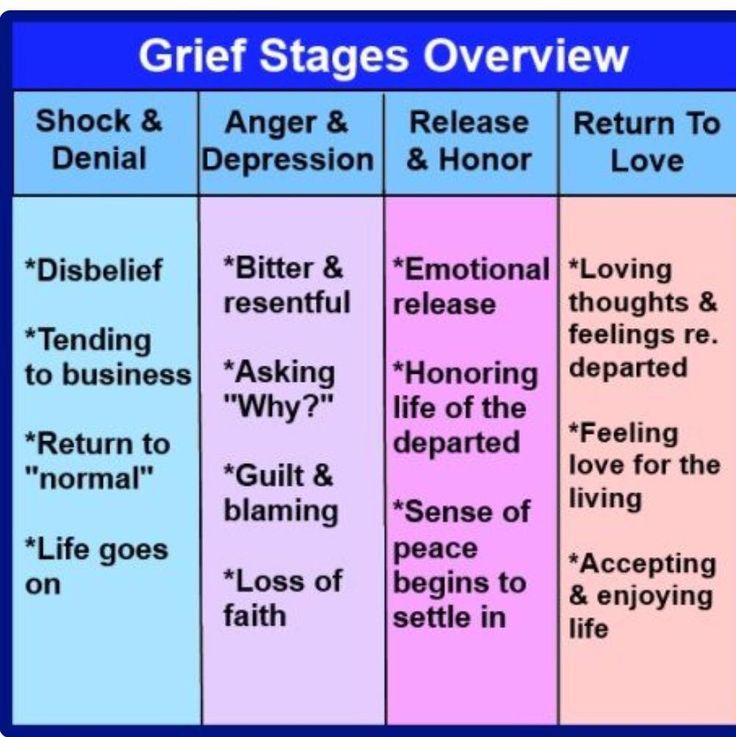 Some people will tell you that the grief of losing a loved one has not left them for a year. In fact, there is no clear time frame for this feeling. Because of the nature of your relationship with your loved one, you may experience grief differently than other people.
Some people will tell you that the grief of losing a loved one has not left them for a year. In fact, there is no clear time frame for this feeling. Because of the nature of your relationship with your loved one, you may experience grief differently than other people.
Coping with the death of a loved one
We will name a few things to keep in mind as time goes on.
Honoring the memory of a loved one
In various cultures and religions there are rituals to honor the memory of a person after his death. Sometimes families create their own rituals, such as lighting candles or a special family meal. You may want to honor the memory of a loved one in a special, meaningful way for you. It is also possible that you would like to honor a loved one more openly. This could be an Internet posting in memory of the deceased, a memorial plaque, or a tree planted in the garden. All this will contribute to the formation of a sense of community and kinship.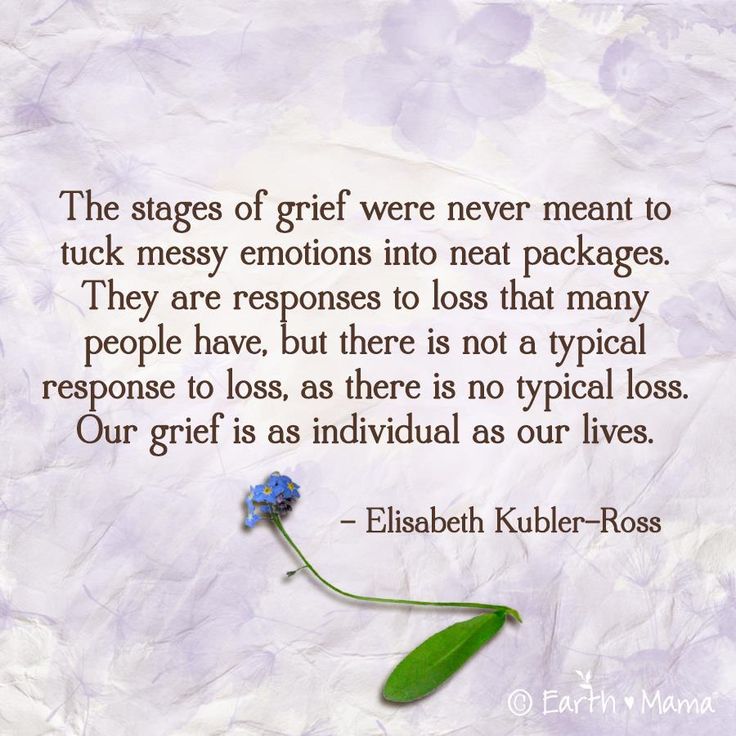 You may want to discuss with your spirit guide, friends, and family how you would like to honor a loved one. Whatever you choose, remember that there is no right or wrong way to honor a loved one.
You may want to discuss with your spirit guide, friends, and family how you would like to honor a loved one. Whatever you choose, remember that there is no right or wrong way to honor a loved one.
How to manage your personal belongings
Your loved one's clothes and personal belongings may have special meaning to you. Some people feel an urgent need to empty cabinets and shelves immediately after the death of a loved one. Others keep everything as it was before the loss. You may find solace in your loved one's clothes or books. You can also give these things to relatives and friends. These decisions can only be made by you. Do not rush to decide something and do what will be most acceptable for you and for your family.
Connecting with family and friends
Relatives and friends can support you during this time. However, they will have their own feelings and reactions related to the death of a loved one and your grief. Some people don't know what to say to a grieving person.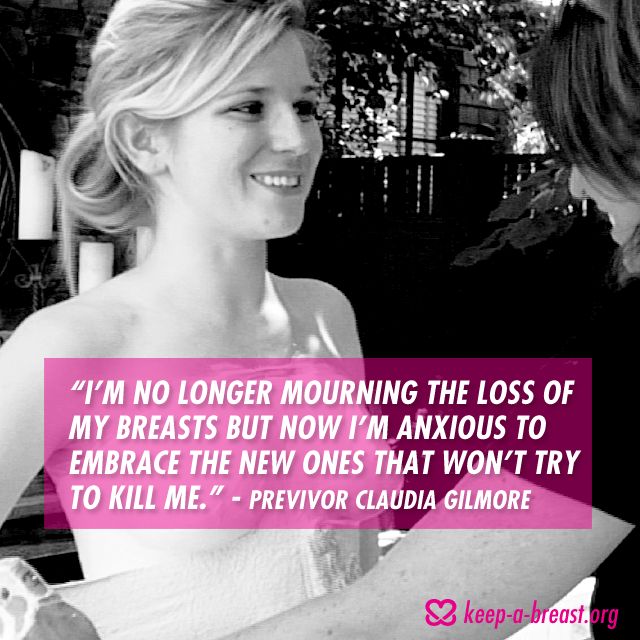 They may say something tactless or rude when trying to sympathize. Your needs may not always be clear to your partner or your relatives or friends. For this reason, it can be helpful to talk about your needs, even when it's difficult. If you're not ready to talk, you might find it easier to write an email or send a text message. You can also ask a friend or relative to help you connect with others during this period.
They may say something tactless or rude when trying to sympathize. Your needs may not always be clear to your partner or your relatives or friends. For this reason, it can be helpful to talk about your needs, even when it's difficult. If you're not ready to talk, you might find it easier to write an email or send a text message. You can also ask a friend or relative to help you connect with others during this period.
Making decisions
You may find it difficult to make decisions at the moment. For this reason, after the loss of a loved one, it may be better to postpone important matters for a few months or a year. These issues include moving, moving to a new job, or reviewing financial affairs. You may find it helpful to seek advice from friends and family when it comes time to make these decisions.
Holidays and anniversaries
Various significant dates will come, such as anniversaries, birthdays and holidays, which will remind you of the loss. It can be hard for you to celebrate these days for the first time without a loved one. Planning ahead will help make them a little easier.
Planning ahead will help make them a little easier.
You may want to mark these days differently this time. One option might be to revise old family traditions or establish new ones. You may find comfort in socializing with friends and family, or you may prefer to do things alone. Whatever your decision, remember that there is no right or wrong way to spend these days. Try to do what is most acceptable to you.
How to help a child cope with loss
The death of a loved one affects children of all ages. If you have children who are bereaved, you may want to protect them from the sadness you are experiencing. However, it is important to be aware of what happened and recognize that all children will experience loss in their own way.
How your children experience grief depends on their age, on their concept of death, and on the behavior of others who serve as an example for children. However, it is important to be honest with them about what happened, using age-appropriate language. Phrases such as "no longer with us" or "passed away" may be incomprehensible to young children. They may experience grief in different ways and at different times. Be honest with your children and answer their questions. This will help them feel your love and protection, as well as the participants in your joint work to return to normal life.
Phrases such as "no longer with us" or "passed away" may be incomprehensible to young children. They may experience grief in different ways and at different times. Be honest with your children and answer their questions. This will help them feel your love and protection, as well as the participants in your joint work to return to normal life.
If you have difficulty communicating with children, ask a family member, friend or professional social counselor for help. A Memorial Sloan Kettering (MSK) social worker can give you more information about support services for you and your family.
back to top of pagePersonal care
Grief can cause mental, physical and emotional distress. It is important to pay attention to your needs. During this period, self-care may not be the main thing for you. You may be focused on caring for other family members. You may even feel guilty about paying attention to yourself. Allowing yourself to take care of yourself and taking the time to do so will help you deal with the loss.
Here are some examples of how you can take care of yourself when dealing with the death of a loved one.
Find time for yourself
Each of us takes care of ourselves in our own way. Some people benefit from physical activity, such as walking or exercising. Others prefer socializing with friends and relatives, or sharing meals and conversations. You can learn new skills like cooking or gardening. By taking the time to find new ways to comfort and enjoy yourself, you can recover from grief faster.
Build a support system
Grieving alone can be very difficult. It is important to create a support system for you and your family. This may include:
- spending time with friends and family;
- participation in a support group;
- seeking advice from specialists;
- volunteering or participating in community events.
It is important to maintain open communication with those who support you. Talking to them about your experiences will help you stay connected while you grieve.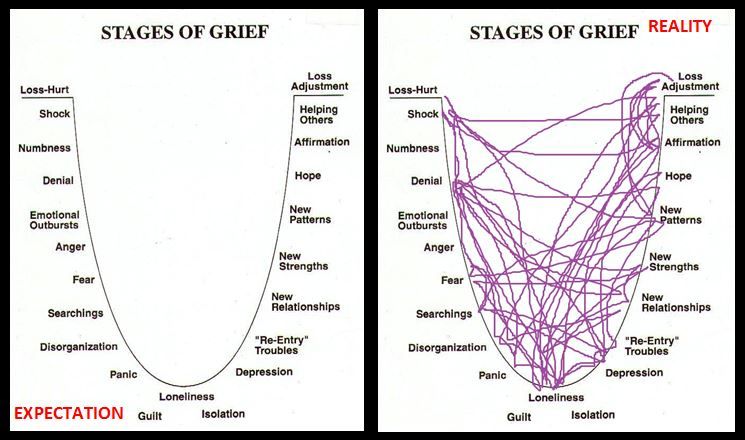
Recognize the need for professional help
Some people may feel overwhelmed by grief if their feelings do not change over time or if they become more difficult. If you have been experiencing these feelings for 6 months or longer since the death of a loved one, you may need to consider getting additional support.
Here are some signs that you need professional help:
- you experience deep sadness and feel that life has lost its meaning;
- you lost interest in what you liked, or stopped enjoying it;
- you avoid social events;
- you find it difficult to make decisions or solve everyday tasks;
- you are unable to care for yourself or your children, or neither;
- you have trouble sleeping or eating, or both;
- you experience strong feelings of guilt, regret, or anger;
- you have bad habits, such as alcohol or drug abuse;
- you have thoughts of suicide or harming yourself.

Various MSK counselors can help you. These include social workers, psychologists, psychiatrists, spirit guides, mental health counselors, and art and music therapists. A counselor can help you cope with changing your outlook on life, taking care of yourself and your family, and doing your daily activities.
We cannot prevent death, but with time, patience, and support, we can learn to deal with loss. Most importantly, we can find ways to find meaning in life again.
back to top of pageResources
MSK offers a range of resources for grieving families and friends. For more information on the resources listed below, visit www.mskcc.org/cancer-care/counseling-support/support-grieving-family-friends.
To find out about bereavement services at MSK, contact your healthcare provider or the Department of Social Work's Bereavement Program. Call 646-888-4889 or send an email to [email protected].
Department of Social Work Bereaved Support Program
646-888-4889
[email protected]
The Department of Social Work's bereaved support program includes free telephone consultations, support groups, and educational lectures, and recommends local social assistance resources for the community. Social workers for oncological (cancer) patients provide qualified assistance in solving the psychological, social and spiritual problems that arise in those who experience loss. They can also help solve practical problems for bereaved persons, their families and friends.
Social workers for oncological (cancer) patients provide qualified assistance in solving the psychological, social and spiritual problems that arise in those who experience loss. They can also help solve practical problems for bereaved persons, their families and friends.
MSK Counseling Center
646-888-0100
Some grieving families find that specialist advice has helped. Our psychiatrists and psychologists work at the bereavement clinic, where they provide counseling and support to individuals, couples and families. They may also prescribe medications to help you get out of your depression.
Spiritual Support
212-639-5982
Our chaplains are available to listen and support family members, pray and reach out to local clergy or religious groups. They can also simply comfort and lend a hand of spiritual help. Anyone can apply for spiritual support, regardless of their religion.
Integrative Medicine Service
646-449-1010
Our Integrative Medicine Service offers patients a variety of treatments in addition to conventional medical care and emotional support services.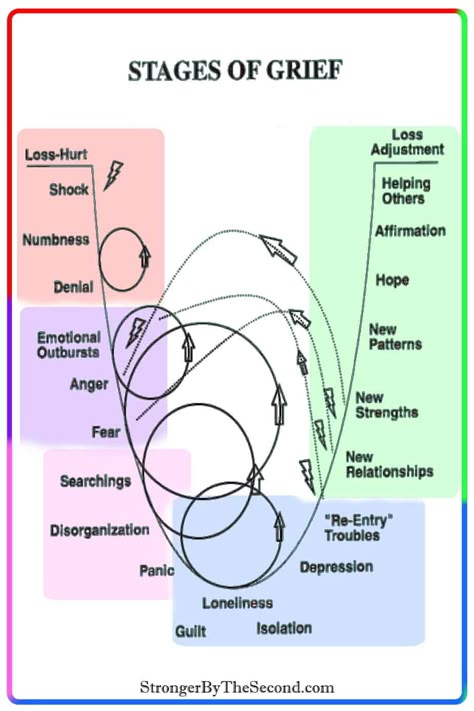 Our services include music therapy, mind/body therapy, dance, movement and touch therapy, yoga, exercise and meditation classes. These services can help bereaved people cope with possible physical and emotional distress.
Our services include music therapy, mind/body therapy, dance, movement and touch therapy, yoga, exercise and meditation classes. These services can help bereaved people cope with possible physical and emotional distress.
Coping with loss | Practicum - Psychology of effective life
Let's talk about a phenomenon that will affect each of us sooner or later - about mourning. Wrongly experienced, poorly worked out, it becomes one of the obstacles to the transition to the next chapter of life. I will not only talk about the main stages of mourning, but also about the specific coaching actions at each of them.
Losses happen both in the family and at work - in any area - and can relate to anything significant. We are talking about physical, social or professional grief.
It's hard to talk about mourning without remembering Elisabeth Kübler-Ross. She was a great psychologist, and it was she who introduced the seven stages of mourning to the general public. You've probably heard about shock, denial, anger, trading, depression, resignation, and acceptance.
You've probably heard about shock, denial, anger, trading, depression, resignation, and acceptance.
It is appropriate to mourn not only the loss of a loved one. I encourage you to go through these stages whenever you lose something meaningful to you: the end of a relationship you hold dear, or the end of a valuable contract, or the loss of a close friend. For every bad news that is important to you, there is a short mourning.
Going through the stages of mourning is important even after moving to a new country. Many do not "bury" their past in their former country, and as a result, it prevents them from adapting and makes them fall into nostalgia and constant comparison with what was before.
In quality coaching, the loss is carefully worked through. This allows not only to move on, but also to make commitments in terms of a new start, a new direction, or a new life.
The seven stages of mourning must be understood, lived, they must be consciously tracked in order to live them more effectively. The steps are sequential, and logically each step leads to the next. You can go back if you still can't turn the page.
The steps are sequential, and logically each step leads to the next. You can go back if you still can't turn the page.
The first stage is shock
This is often the shortest phase: your transformation, which results from a simple statement of fact. For example, when you are informed about the breakup of a relationship. Very often, a traumatic message throws you into a state of stupor. That is, the person does not understand what happened. Often he has the feeling that he was in another dimension. This happens when you are told, for example: "I'm leaving you", "It's over", "You're fired".
At this point, the emotional shock has such an effect on you that you are unable to think.
Coaching advice. As far as possible (because you can never be prepared for this), accept this event. And especially don't react, don't do anything under the influence of emotions.
All decisions made at this moment lead either to defeat or to disaster. At this stage, you are not capable of making sound, informed decisions. Therefore, refrain as far as possible from an immediate reaction. This is not what is required of you now.
At this stage, you are not capable of making sound, informed decisions. Therefore, refrain as far as possible from an immediate reaction. This is not what is required of you now.
Second stage - denial
Refusal to believe in the information received. At this stage, we put forward counterarguments, dispute, try our best to discard uncomfortable information. An intense internal dialogue and conversations with others appear: "No, this cannot be", "It is impossible", "It's not true!", "It didn't happen!", "I don't believe it!", "I'm dreaming about it".
This is a short phase, but despite its brevity, it is extremely important. A huge number of people are stuck here for a long time, because they do not want to see the objective reality! They keep intact the bedroom of the deceased, his clothes, they put cutlery for him every time they set the table.
Coaching advice. Verbally formulate and describe on a sheet of paper in large letters, always by hand, the situation as it is. I know it's hard. It is hard to say to a person who has just lost something extremely important to himself: “Write in large letters by hand what you are experiencing right now.”
I know it's hard. It is hard to say to a person who has just lost something extremely important to himself: “Write in large letters by hand what you are experiencing right now.”
The very fact of "bringing the situation out" so that it can be "seen from the outside" leads to awareness. When you've got everything down on paper, take a deep breath and say, "I agree to see reality as it is." Do this at least 10 times.
I know it's hard. But these are saving actions. They will help you get to the next stage with much more peace of mind.
The third stage is anger
Often this stage is also called bargaining. There is a confrontation with the fact that provokes protest. And it turns out to be directed either at you or at others.
This is also a bargaining phase, often taking a "magical" turn. When a person promises an invisible higher power not to do this or that again if the situation becomes the same.
The intensity of experiences in this phase is different and depends on the character of the person, his emotional maturity, as well as his relationship with the traumatic event. It is especially important to express your feelings at this stage, not to keep it to yourself.
It is especially important to express your feelings at this stage, not to keep it to yourself.
A person's thoughts when he is in this dimension are fed by many contradictions. He can be either very sociable or completely isolate himself from others. Here the widest range of behavioral reactions is possible, up to a thirst for revenge with real bouts of aggression.
At this stage, the person does not understand what is happening to him. Often he himself can not explain his behavior. Such is the human reaction to the collision, in fact, with the inability to go back, "to do as it was." That is, now he already understands what happened and that a return is impossible. And he must mourn what happened, mourn.
Many emotions and unusual behaviors that were not typical before can manifest: reproaches, remorse, worries, disgust, repulsion of other people in various forms. It can even be mechanisms of seduction or aggression. But at this stage, it's completely normal. "It's because of him", "He never did anything for me.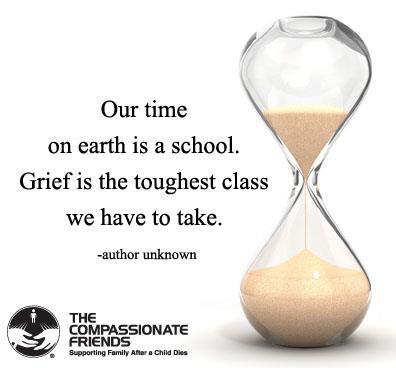 "
"
Coaching advice. Write a letter of anger. The process of writing by hand releases a lot of emotion. When you get rid of them, ask yourself questions: “Is this really reality or just my interpretation?”, “Is what I am writing now really true? Or can there be another explanation, another interpretation for all this?
It is necessary to step back a little from the situation. And this distance will invariably lead you to the next stage.
Fourth stage - depression
This is the stage of hopelessness. “This is unfair”, “Why did he do this to me?”, “What will happen to me now?”.
My mother, when she lost her father, repeated: “I don't understand why he did this to me. Why did he leave before me? Why did he leave me all alone?"
You must understand that this sadness contains great fear. It can be: “I’m afraid to be alone”, “I’m afraid that I don’t have enough knowledge (professional skills, connections, money, etc.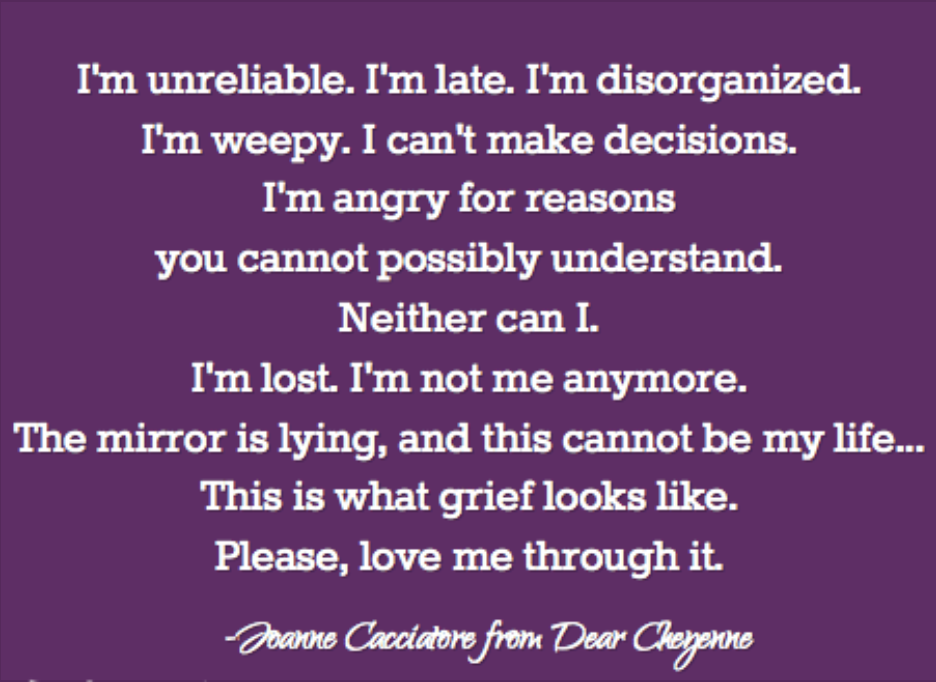 ) to continue living alone”, “I’m afraid to return to normal life, I’m afraid to take take full responsibility for your life." The main question that a person is asking himself now in various forms is “how will I live on?”.
) to continue living alone”, “I’m afraid to return to normal life, I’m afraid to take take full responsibility for your life." The main question that a person is asking himself now in various forms is “how will I live on?”.
Coaching advice. Write a list of all difficult periods in your life and all areas (couple relationships, work, finances, health, etc.) in which you managed to cope with the circumstances. All situations where you were forced to start from scratch, when you learned something on your own, in courses or with someone's help.
It is important that the list is as clear and simple as possible and contains many situations. And opposite the list, in a separate column, mark the qualities that you could develop in yourself in order to achieve the result then.
When everything is written down on paper, you will have a clear vision of your possibilities. This will give the brain a signal that you have already managed to find or develop the necessary qualities in yourself and cope with problems.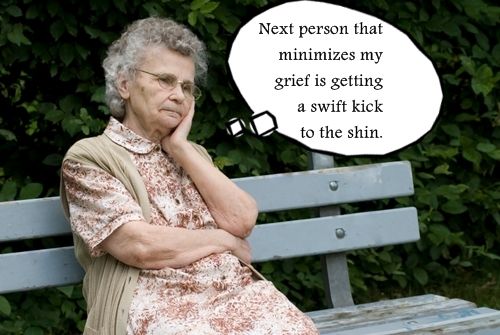
The fifth stage is humility
Here the person stops fighting, he already feels that he has tried everything, but he could not return to the previous situation. Humility is the beginning of acceptance. He does not yet have a vision of the situation in the future, he does not yet know how he will live further. But he already at least adapts to momentary circumstances.
Humility can be accompanied by reactions of rejection: "That's life", "It's only for God", "It's true, and I can't do anything about it."
Coaching advice. Make a list of everything that is good and valuable in your life. Write down everything that you are happy with, that you are good at. Now think about it and start setting goals for yourself in other areas of your life.
For example: “I lost my job, I need a little break to get over it. But until I find another, this is a good time to get close to the kids. Or spend more time with my wife, I paid little attention to her while I worked. I have to take a little more care of my health, my body. On a mental and spiritual level, I also want to understand what I really want from life.
I have to take a little more care of my health, my body. On a mental and spiritual level, I also want to understand what I really want from life.
Stage six - acceptance
Delicate stage. A person agrees with the loss of a dear person, friend, job. But, accepting this fact, he already keeps in memory not only some good moments, but also bad ones.
A person begins to become a little more self-confident, to feel better, to look into the future less gloomy. My mother used to say: “I think about my father all the time, but I manage to get on with my life.” It speaks of the stage of acceptance.
Coaching advice. Write it down, say it out loud. “I accept (agree with) … in my life. And I choose…” For example: “I accept the death of my spouse in my life. And I choose to continue to live and remember him with gratitude.
The more you talk about it, the more you write, the more it is imprinted in your mind. And the more it helps to accept the situation and takes you to the next stage.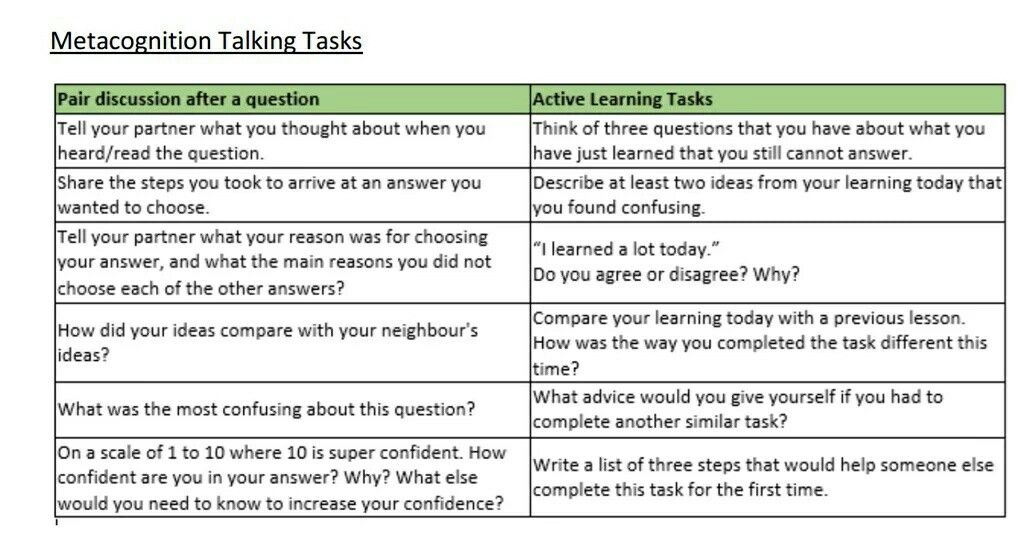 Naturally, during the acceptance stage, write things that inspire you.
Naturally, during the acceptance stage, write things that inspire you.
The seventh stage - construction
It can come only after acceptance. Acceptance alone is not enough, you need to gradually rebuild yourself in connection with significantly changed circumstances. A man in grief realizes that he has to change his life. Now he has to do a lot of new things, he has other obligations to society and himself.
Such remaking of oneself allows one to know oneself better, to discover one's personal resources. Helps to better understand your place in life. This, in turn, increases self-confidence and self-esteem.
This is the best time to enter the spiritual dimension, to truly discover it. It can also help you a lot.
Coaching advice. If you have the feeling that you haven't gone through all the stages of mourning for a specific life situation, personal or professional, review all the stages you have gone through.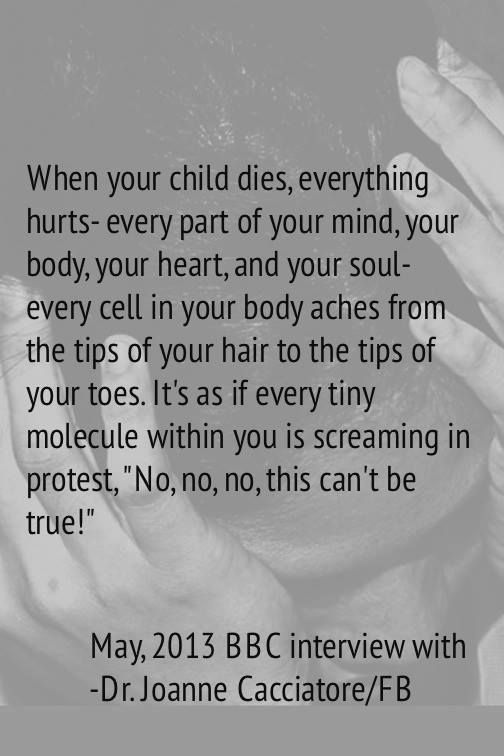 And for each, do the work that I told you about. You will see that when you redo it, you will immediately feel relief.
And for each, do the work that I told you about. You will see that when you redo it, you will immediately feel relief.
About the time of mourning
And finally, the most important thing. Give yourself time for this!
It has been observed that in all strategies associated with coping with loss, allocating a specific period of time for oneself allows the brain to organize its resources.
For example, in Jewish culture, the period of mourning usually lasts a week. At this time, a person does not go anywhere, does not celebrate anything. Visitors will come to him, but not to help him unwind or disperse sad thoughts. A person will use them to experience his loss throughout the week, to release and express his emotions.
Let me remind you that everything that is not expressed is imprinted on the brain.
If you lose your job, give yourself time, do not immediately rush to find another one. Think about what you did well in the same place, what you could improve, what you will take with you, what you will get rid of, what new competencies you will develop.
Set deadlines
It is even more important to choose a specific date for mourning. I ask my clients, “How long are you going to mourn? Today, for example, is January 1st. From what date do you consider mourning over? In a month, two, three? How much exactly?
When a person sets the final date for his mourning, he takes responsibility, control over his life.
You encounter a similar phenomenon when, for example, you are about to go on vacation. Have you noticed how productive you are the day before or three or four days before departure? Because you have a specific deadline by which all current affairs must be completed. This pushes you to find resources to organize effectively.
The same principle is true for mourning: one must choose the end date for oneself. This is perhaps the best advice I can give you about mourning.
Support others
One more thing: pay attention to those around you who are also mourning.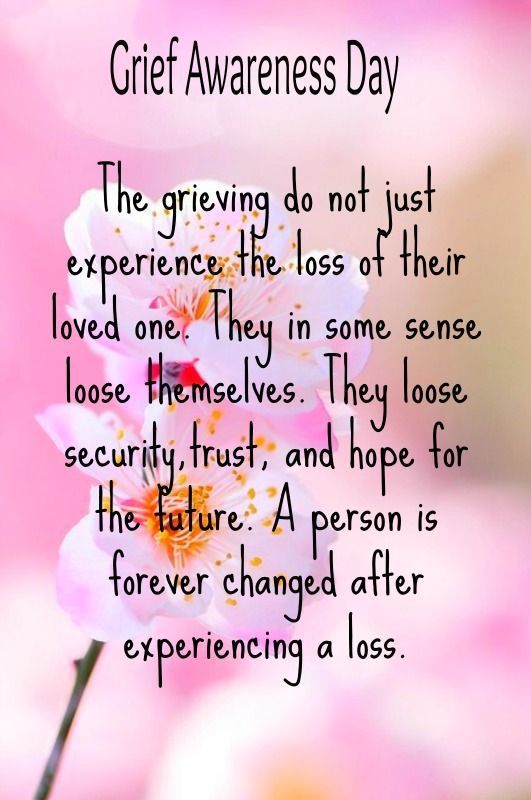 Help them in their grief. By helping them, you help yourself.
Help them in their grief. By helping them, you help yourself.
Choose life. Ask yourself a simple question that others have probably already asked you, but now ask yourself and try to answer as honestly as possible: if the person you loved who you lost was next to you and was your coach, what would he say to you? What would he ask you to do?
Editorial
Undoubtedly, the most difficult thing is to survive the death of a loved one. But, alas, this is a natural part of life, which sooner or later everyone will face without exception. Psychologist Irina Gribkova gives instructions on how to cope with the loss of a loved one: https://psy.systems/post/kak-perezhit-smert-blizkogo-cheloveka.
It is a little easier to accept the breakup of a relationship. What if your partner says he is leaving you? Accept and let go, advises Elena Cherkasova: https://psy.systems/post/prinyat-razryv-i-otpustit.
